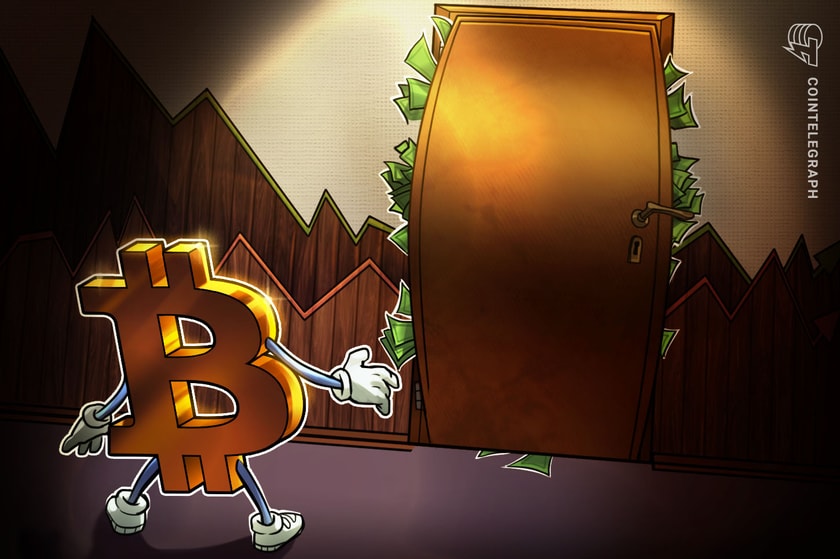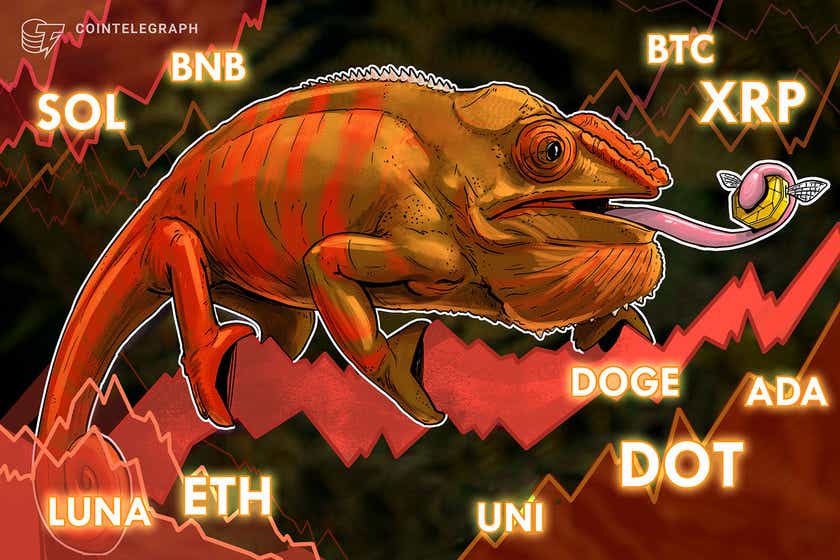Binance’s explosive growth led to compliance failures – CEO Richard Teng on $4.3B settlement
“As part of the settlement, CZ cannot be involved in the day-to-day running of the company’s operations,” Richard Teng explains.
Despite that, the incumbent CEO of Binance cuts the figure of a man reveling in the challenges ahead. Speaking to Cointelegraph just two weeks after taking over from outgoing CEO Changpeng ‘CZ’ Zhao, Teng seems to be relishing being at the helm of the world’s largest cryptocurrency exchange:
“I’m taking the baton and pushing ahead with our growth agenda while working very closely with global regulators.”
Teng believes that the “overcast” conditions clouding Binance in recent months are lifting following its staggering $4.3 billion settlement with the United States Justice Department relating to a raft of violations of U.S. regulations and sanctions programs.
$4.3B settlement a result of early gaps in compliance
The exchange has paid dearly for mistakes made during its meteoric growth from 2017 onwards. Teng recalls how Zhao built Binance from a team of six people to a global operation consisting of thousands of employees that serves a user base estimated to be more than 166 million.
“In those very early days while we were building up the company, there were gaps in terms of compliance. That resulted in all these breaches and mistakes, but these are historical issues,” Teng says.
The shortcomings of its early compliance regime have led to the largest crypto-related settlement in U.S. history. However, Teng contends the company has always ensured its user funds, security, and safety have remained “sacrosanct.”
“U.S. agencies have scrutinized our operations in great detail for us to reach this settlement, and there’s no allegation of any misappropriation of user funds,” he adds.
Binance’s obligations to U.S. authorities
Binance is now left to shoulder the ongoing cost and scrutiny that its settlement with U.S. authorities involves. This includes a five-year monitorship and significant compliance undertakings to ensure “Binance’s complete exit from the United States.”
Teng wouldn’t be drawn into the details of Binance.US’s ongoing legal battle with the U.S. Securities and Exchange Commission (SEC) over alleged securities violations. Still, he maintains the company has factored in the costs of meeting the requirements set out in its settlement and its case with the SEC.
The Binance CEO is also bound to non-disclosure agreements relating to its $4.3 billion settlement and would not comment on the means of payment of the penalty. Cointelegraph understands that Binance is in the process of paying its assessment, while a separate case brought against CZ will be paid personally by the former CEO.
The company also confirmed that the movement of some $3.9 billion worth of USDT tokens reported on Nov. 21 was “unrelated to resolution matters” with the U.S. Justice Department.
Was Binance treated unfairly?
Prominent figures in the cryptocurrency space, including former BitMEX CEO Arthur Hayes and Galaxy Digital’s Mike Novogratz, have commented on the disparity between the treatment of Binance and mainstream finance firms in recent years.
Teng weighed in on the perception that “Wall Street Banks” have not been subject to the same treatment despite arguably even bigger failings.
“Fines in terms of the financial sector are not uncommon. If you do a Google search of the list of fines paid by financial institutions, that list is close to $90 billion in fines,” Teng says.
Whether Binance has been made an example of is not a consideration. Nevertheless, the exchange could be the “most regulated exchange globally”, given that Binance operates in 18 different jurisdictions.
Binance is keenly focused on compliance from now on. The company has grabbed headlines for headhunting strategic individuals to navigate regulatory requirements in different jurisdictions.
Teng says the company has “invested heavily” in this regard, pointing to key talent in its compliance team with backgrounds in regulatory agencies like the SEC and traditional financial institutions, including the likes of Morgan Stanley and Barclays.
Building out of UAE, France
Binance remains a global operation but the company has set down two regional headquarters. The United Arab Emirates (UAE) serves as its headquarters for MENA region operations, while France is its European base.
The former region is familiar territory to Teng, who previously lived in the UAE for nine years and served as CEO for local regulator Abu Dhabi Global Markets. His role involved laying down a cryptocurrency framework for the local ecosystem.
“When I first got in touch with crypto, my take was this is the future of finance. But for this to really gain traction and for mass adoption to be brought about, you need two elements,” Teng explains.
Clarity of rules and regulations was the first consideration, and the second was fostering institutional adoption. The latter point remains crucial to Teng as it brings in investors and liquidity and drives research.
As a result, the UAE has emerged as a proverbial oasis for the cryptocurrency and blockchain sector. It continues to attract global players as a base of operations in the MENA region.
The implementation of Europe’s Markets in Crypto-Assets regulations also bodes well for Binance’s prospects in the region.
“You have clarity of rules to operate in 27 different jurisdictions,” Teng says, which provides a blanket set of requirements for the industry that has to date suffered from “disparity in terms of rules”.
Binance was forced to terminate its services in the Netherlands in June 2023 after failing to satisfy registration requirements to obtain a local virtual asset service provider (VASP) license. MiCA could serve as a means to expand into new markets through 2024 and beyond.
Stepping into CZ shoes
Undoubtedly, stepping into CZ’s shoes is an unenviable task. Teng describes Binance’s founder as an inspirational leader and great mentor focused on execution.
The incumbent is also honest in his understanding that he cannot replace CZ’s role as a founder-CEO, but the current landscape also lends to the merits of a fresh face and new approaches.
“What I can do is bring my own values and expertise to the table in a maturing company. Six years ago, compared to now, Binance is totally different,” Teng explains. The new CEO will report to a board of directors, which will act as the governing authority of the company.
If and when he has time to blow off some steam, Teng hopes to maintain routine in his private life. The CEO enjoys exercising, doing a mix of “weights, cardio and core”. He’s also a bookworm, citing Elon Musk’s biography by Walter Isaacson as his most recent read.
Magazine: Slumdog billionaire: Incredible rags-to-riches tale of Polygon’s Sandeep Nailwal









